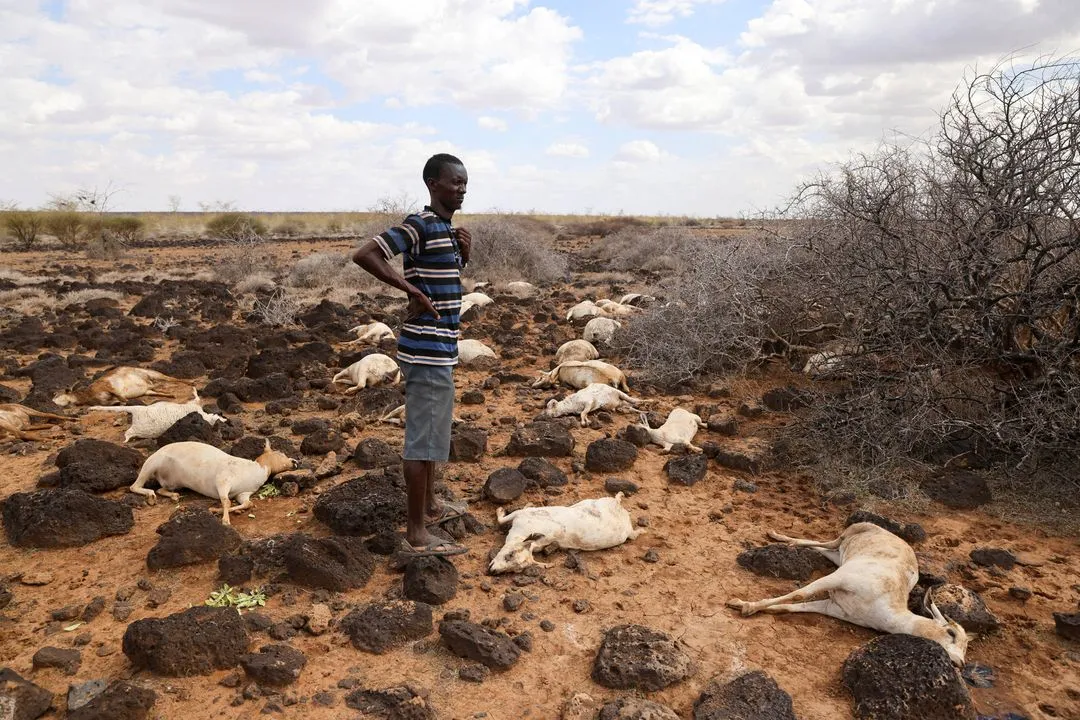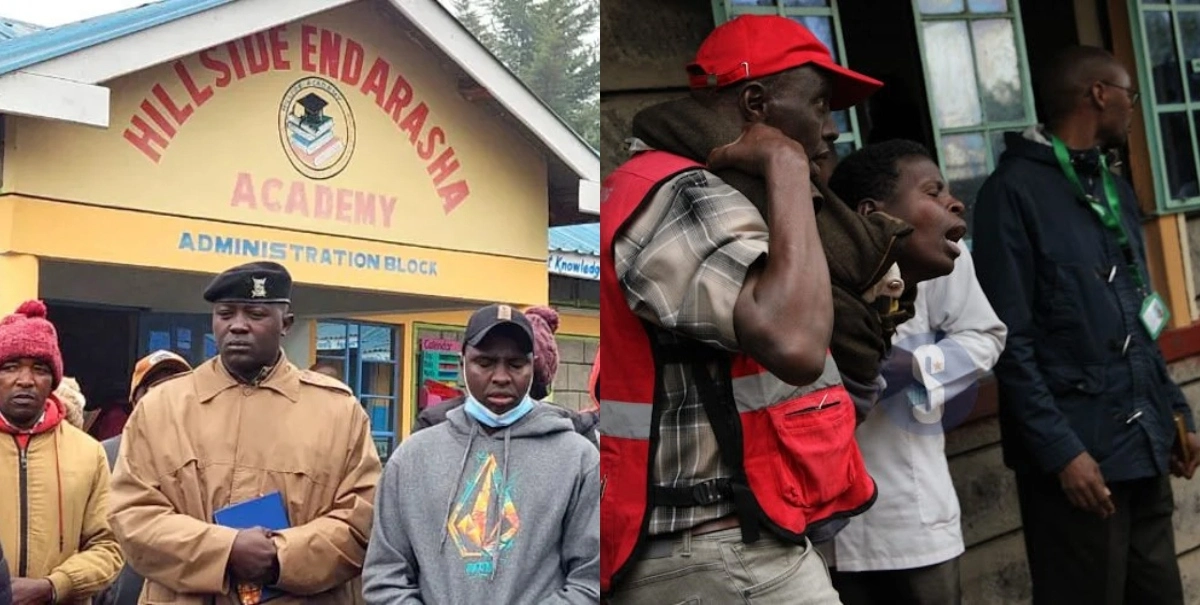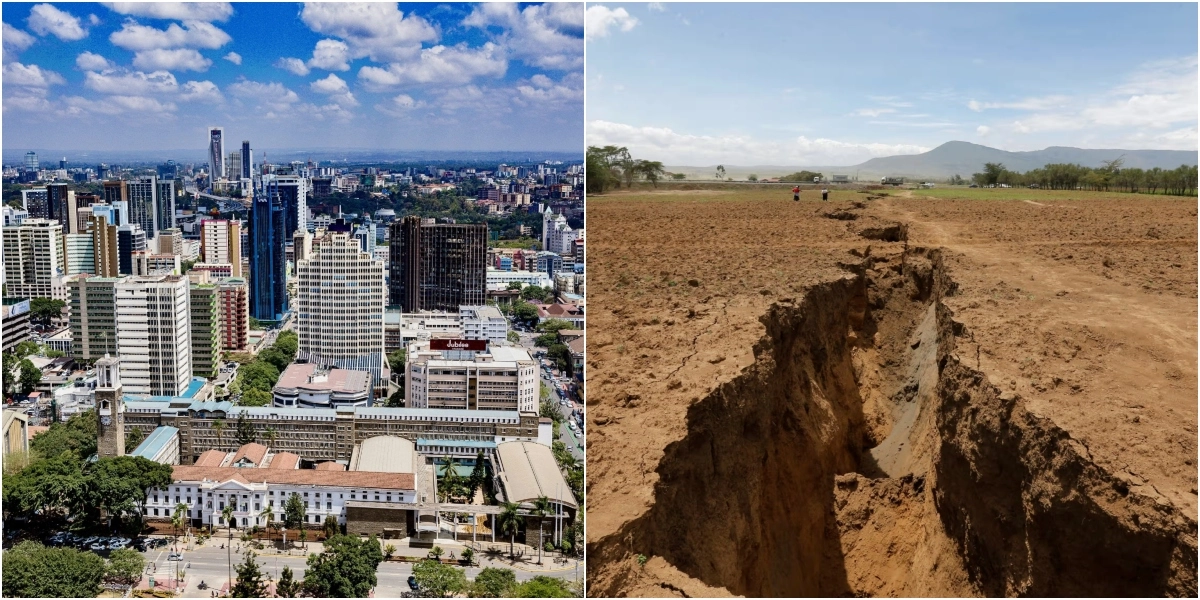Two herders from Dukana Ward in North Horr constituency, Marsabit County are left devastated after 93 goats, all of which perished after consuming contaminated water on Tuesday.
The unfortunate event echoes a similar tragedy in January 2019 when 37 camels lost their lives due to contaminated water at a local water point in Maikona.
![A herder drives goats to a water pan in Laisamis, Marsabit County on June 1,2015. Pastoralists from the area struggle to find buyers for their skinny remaining animals. [FILE PHOTO/NMG] Contaminated Water](https://news.switchtv.ke/wp-content/uploads/2023/08/goat.webp)
Shockingly, 23 years ago, over 6,500 animals fell victim to nitrate poisoning in Kargi and Laisamis, according to county records.
Read also: Researchers Warn Kenyans: Beware of Contaminated Milk
Hussein Ali, the county executive committee member for Agriculture, Livestock, and Fisheries, confirmed the incident and announced that the shallow well responsible had been immediately closed down pending a thorough investigation.
He stated, “We received the sad report and immediately dispatched our field officers with a directive to urgently close the water point. Samples have been sent to Nairobi for analysis.”
In response, the livestock department swiftly deployed officers to collect water and blood samples, recommending immediate laboratory testing.
“We are committed to uncovering the cause of this tragedy and preventing further loss,” Mr. Ali added.
Dr. Halkano Arero, Chief Officer for Livestock and Veterinary Services, expressed concern about the heightened risk of animals consuming contaminated water in areas like El-hadi, Sabare, Bales-Saru, and Dukana.
![Children share the same drinking water with goats and sheep at Malalba Gaal Ch'orro borehole in North Horr Town in Marsabit County. There people died on March 22, 2017, in the country of water-related diseases. [PHOTO /NATION MEDIA GROUP]](https://news.switchtv.ke/wp-content/uploads/2023/08/Capture-2.webp)
He referred to past incidents and indicated, “While we await the test results, the historical evidence points to a potential high nitrite content in the water bodies.”
In light of this grim scenario, Dr. Arero advised residents against allowing their animals to drink from unused water points that have been idle for extended periods.
He elaborated, “This precaution can help deter further animal deaths.”
The two affected herders, Bante Duba and Molu Duba, have issued a heartfelt plea to local non-governmental organizations, the county, and the national government to provide assistance during this difficult time.
Bante Duba emotionally stated, “We depend on these animals for survival and we are still in shock as we stare at the carcasses before us. We cry to the two governments and NGOs to help us overcome this loss.”
Contaminated water often carries elevated nitrate levels due to groundwater pollution caused by factors such as animal waste run-off, fertilizers, and human sewage.
When livestock consume such water, it impedes the blood’s oxygen-carrying capacity, effectively suffocating the animals from within.
The gravity of the issue led to the formation of an inter-ministerial task force in 2009, which investigated sporadic livestock deaths in Marsabit.
The task force advised residents in desert areas against consuming surface water due to safety concerns.
In 2020, residents sought action from the government through Kituo Cha Sheria, petitioning the High Court to address the urgency of the matter.
Subscribe to Switch TV











































